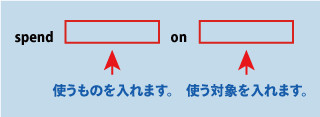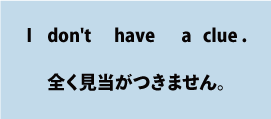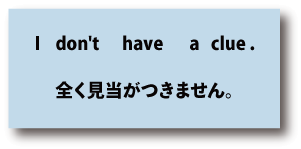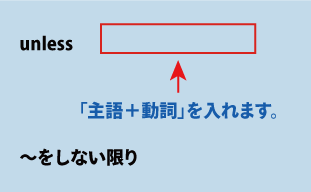
〇月△日 続く主人の思い




―Next morning. Sherry and Pina were sitting beside the pond in the campus. There weren't any students.―
"I know. Bronx …" Pina said.
I talked about yesterday's story to Pina.
"That's too bad."
"Yeah, but now I'm O.K. If we feel sad we'll make Bronx sad, too. I decided not to mind about it. I'll do as usual."
"Yes, you should do so."
"I wanted to introduce Pina to Bronx, but he might not come to the university several days."
"He will spend time on a rest."
"I don't have a clue about a day when he will come but he will come to the sports stadium after he gets better."
"By the way, does Bellini have her boyfriend?"
"Why do you ask suddenly? Well, she doesn't have."
"To tell the truth, Rickey loves Bellini."
"… Ah, I have thought so vaguely, I know."
"Rickey tries to invite Bellini for dinner but he hasn't said anything yet. Nothing happens unless he talks to her."
"I know. Bronx …" Pina said.
I talked about yesterday's story to Pina.
"That's too bad."
"Yeah, but now I'm O.K. If we feel sad we'll make Bronx sad, too. I decided not to mind about it. I'll do as usual."
"Yes, you should do so."
"I wanted to introduce Pina to Bronx, but he might not come to the university several days."
"He will spend time on a rest."
"I don't have a clue about a day when he will come but he will come to the sports stadium after he gets better."
"By the way, does Bellini have her boyfriend?"
"Why do you ask suddenly? Well, she doesn't have."
"To tell the truth, Rickey loves Bellini."
"… Ah, I have thought so vaguely, I know."
"Rickey tries to invite Bellini for dinner but he hasn't said anything yet. Nothing happens unless he talks to her."

<今日の単語>
spend 費やす
clue 手がかり、糸口
vaguely 漠然と、あいまいに
spend 費やす
clue 手がかり、糸口
vaguely 漠然と、あいまいに

<今日の日本語訳>
―翌日の午前中。大学の池の側にはシェリーとピーナが座っていた。他の学生の姿は見えない。―
「そうだったの。ブロンクスが...。」とピーナが言った。
昨日のことを僕はピーナに話していたのだ。
「それじゃ、シェリーは辛いね。」
「あぁ、でももう大丈夫さ。僕らが暗くなっていたら、ブロンクスまで暗くさせてしまうからね。だから、もう気にしないようにするよ。いつものようにする。」
「そうだね、それがいいね。」
「ピーナをブロンクスに紹介しようと思っていたけれど、ブロンクスはまたしばらく来ないらしいんだ。」
「ブロンクスは休養に時間をあてるんだね。」
「いつくるのかは見当がつかないけれど、またよくなったら運動競技場に来てくれるさ。」
「ところで、ベリーニには恋人がいないの?」
「突然どうしたの? 別に今はいないけれど。」
「実はリッキーがベリーニのことを好きなんだよ。」
「...何となくそう思っていたけれど、やっぱり。」
「リッキーは食事に誘おうとしているみたいなんだけれど、まだ言えないらしい。 言わない限り何も起こらないのにさ。」
―翌日の午前中。大学の池の側にはシェリーとピーナが座っていた。他の学生の姿は見えない。―
「そうだったの。ブロンクスが...。」とピーナが言った。
昨日のことを僕はピーナに話していたのだ。
「それじゃ、シェリーは辛いね。」
「あぁ、でももう大丈夫さ。僕らが暗くなっていたら、ブロンクスまで暗くさせてしまうからね。だから、もう気にしないようにするよ。いつものようにする。」
「そうだね、それがいいね。」
「ピーナをブロンクスに紹介しようと思っていたけれど、ブロンクスはまたしばらく来ないらしいんだ。」
「ブロンクスは休養に時間をあてるんだね。」
「いつくるのかは見当がつかないけれど、またよくなったら運動競技場に来てくれるさ。」
「ところで、ベリーニには恋人がいないの?」
「突然どうしたの? 別に今はいないけれど。」
「実はリッキーがベリーニのことを好きなんだよ。」
「...何となくそう思っていたけれど、やっぱり。」
「リッキーは食事に誘おうとしているみたいなんだけれど、まだ言えないらしい。 言わない限り何も起こらないのにさ。」

<今日の日本語訳&英語訳>
―翌日の午前中。大学の池の側にはシェリーとピーナが座っていた。他の学生の姿は見えない。―
―Next morning. Sherry and Pina were sitting beside the pond in the campus. There weren't any students.―
「そうだったの。ブロンクスが...。」とピーナが言った。
"I know. Bronx …" Pina said.
昨日のことを僕はピーナに話していたのだ。
I talked about yesterday's story to Pina.
「それじゃ、シェリーは辛いね。」
"That's too bad."
「あぁ、でももう大丈夫さ。僕らが暗くなっていたら、ブロンクスまで暗くさせてしまうからね。だから、もう気にしないようにするよ。いつものようにする。」
"Yeah, but now I'm O.K. If we feel sad we'll make Bronx sad, too. I decided not to mind about it. I'll do as usual."
「そうだね、それがいいね。」
"Yes, you should do so."
「ピーナをブロンクスに紹介しようと思っていたけれど、ブロンクスはまたしばらく来ないらしいんだ。」
"I wanted to introduce Pina to Bronx, but he might not come to the university several days."
「ブロンクスは休養に時間をあてるんだね。」
"He will spend time on a rest."
「いつくるのかは見当がつかないけれど、またよくなったら運動競技場に来てくれるさ。」
"I don't have a clue about a day when he will come but he will come to the sports stadium after he gets better."
「ところで、ベリーニには恋人がいないの?」
"By the way, does Bellini have her boyfriend?"
「突然どうしたの? 別に今はいないけれど。」
"Why do you ask suddenly? Well, she doesn't have."
「実はリッキーがベリーニのことを好きなんだよ。」
"To tell the truth, Rickey loves Bellini."
「...何となくそう思っていたけれど、やっぱり。」
"… Ah, I have thought so vaguely, I know."
「リッキーは食事に誘おうとしているみたいなんだけれど、まだ言えないらしい。 言わない限り何も起こらないのにさ。」
"Rickey tries to invite Bellini for dinner but he hasn't said anything yet. Nothing happens unless he talks to her."
―翌日の午前中。大学の池の側にはシェリーとピーナが座っていた。他の学生の姿は見えない。―
―Next morning. Sherry and Pina were sitting beside the pond in the campus. There weren't any students.―
「そうだったの。ブロンクスが...。」とピーナが言った。
"I know. Bronx …" Pina said.
昨日のことを僕はピーナに話していたのだ。
I talked about yesterday's story to Pina.
「それじゃ、シェリーは辛いね。」
"That's too bad."
「あぁ、でももう大丈夫さ。僕らが暗くなっていたら、ブロンクスまで暗くさせてしまうからね。だから、もう気にしないようにするよ。いつものようにする。」
"Yeah, but now I'm O.K. If we feel sad we'll make Bronx sad, too. I decided not to mind about it. I'll do as usual."
「そうだね、それがいいね。」
"Yes, you should do so."
「ピーナをブロンクスに紹介しようと思っていたけれど、ブロンクスはまたしばらく来ないらしいんだ。」
"I wanted to introduce Pina to Bronx, but he might not come to the university several days."
「ブロンクスは休養に時間をあてるんだね。」
"He will spend time on a rest."
「いつくるのかは見当がつかないけれど、またよくなったら運動競技場に来てくれるさ。」
"I don't have a clue about a day when he will come but he will come to the sports stadium after he gets better."
「ところで、ベリーニには恋人がいないの?」
"By the way, does Bellini have her boyfriend?"
「突然どうしたの? 別に今はいないけれど。」
"Why do you ask suddenly? Well, she doesn't have."
「実はリッキーがベリーニのことを好きなんだよ。」
"To tell the truth, Rickey loves Bellini."
「...何となくそう思っていたけれど、やっぱり。」
"… Ah, I have thought so vaguely, I know."
「リッキーは食事に誘おうとしているみたいなんだけれど、まだ言えないらしい。 言わない限り何も起こらないのにさ。」
"Rickey tries to invite Bellini for dinner but he hasn't said anything yet. Nothing happens unless he talks to her."
ここから今日のポイントになります。


★ポイント1
"He will spend time on a rest."
「ブロンクスは休養に時間をあてるんだね。」
「spend」は「(お金や時間を)使う」という意味で使うことができます。
「spend」の後には時間や金額をおくことができます。そして「on」の後には、それを使う対象をおきます。

I spent 2,000,000 yen on a new car.
(私は新しい車に2百万円を使いました。)
Why don't you go drinking tonight?
(今夜飲みに行きませんか?)
I'd love to go. But I can't go tonight?
(ぜひ行きたいです。けれども今夜は行けません。)
What do you mean?
(どうしてですか?)
I have no money. Actually, I spent a lot of money on a date yesterday.
(お金がないのです。実は昨日のデートでたくさんお金を使ってしまったので。)
「お金を使う」という意味では、「buy」を使って「~を買う」というように表現できます。しかし、「a date」のような場合だと「買う」というようには表現できませんので、「buy」を使うことができません。
そのようなときには特に、「spend」を使って表現することができます。
(参考)
「spend+時間+ing形の動詞」で、「~して時間を費やす」というようにも表現することができます。
I spent two hours reading books.
(私は2時間、読書をして過ごしました。)

★ポイント2
"I don't have a clue about a day when he will come but he will come to the sports stadium after he gets better."
「いつくるのかは見当がつかないけれど、またよくなったら運動競技場に来てくれるさ。」
I don't have a clue で「全く見当がつかない」や、「さっぱりわからない」という意味です。
「clue」には「手がかり」や「ヒント」という意味があります。
Where are we now?
(私達は今どこにいるのですか?)
I don't know where this road will lead us.
(この道がどこに私達を導くのかわからないよ。)
Yeah, I don't have a clue.
(ええ、私は全く見当がつきません。)



★ポイント3
"Rickey tries to invite Bellini for dinner but he hasn't said anything yet. Nothing happens unless he talks to her."
「リッキーは食事に誘おうとしているみたいなんだけれど、まだ言えないらしい。 言わない限り何も起こらないのにさ。」
Nothing happens unless he talks to her. は、「彼が彼女に話さない限り何も起こりません。」という意味です。
「unless」には「~しない限り」という意味があります。
そこで unless he talks to her は、「彼が彼女に話さない限り」という意味になります。
「unless」の後には、「主語+動詞」の普通の文を置くことができます。

Unless it rains, the game will start.
(雨が降らない限り、その試合は行われます。)

Sherry's Diary の練習問題
